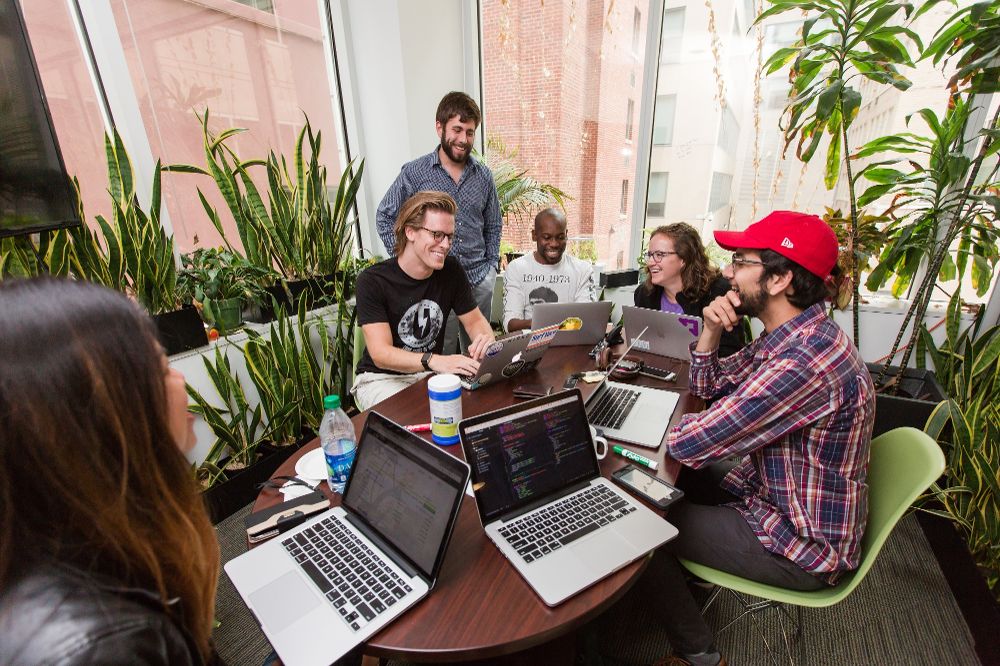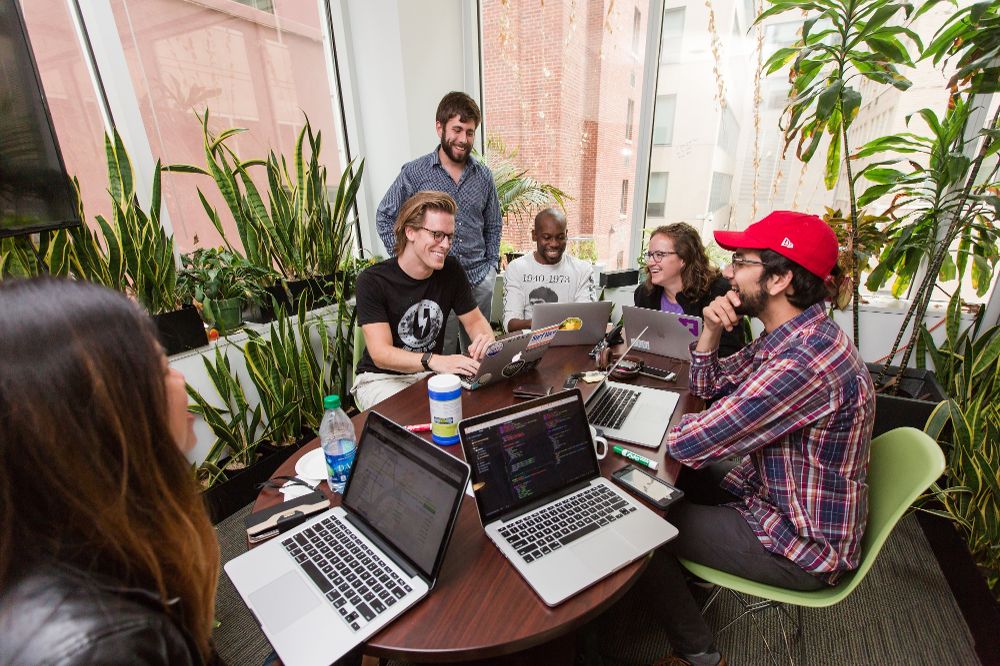There’s only so much you can achieve in engineering on your own, and the same goes for your career. Upside’s tech lead talks about how she’s risen so far.

Emily Dresner, CTO of Upside
We sat down with Chief Technology Officer Emily Dresner at Upside, a travel booking platform that aims to make business travel better. With just around 100 employees, nearly half of whom are engineers, Upside is a fast-growing startup with lots going on, breaking new ground a niche service.
Your career seems linear, looking at your history. Any advice to other women on that path, trying to reach the top technology position in a company?
I think that’s an accurate observation—I did exit grad school with my masters and then started taking regular and senior engineering roles. And then around 2010, projects became bigger than one person could possibly handle, so I picked up a single report at that time.
When I changed employers in 2011 I took a formal team-lead role and I’ve been in engineering leadership ever since. I largely credit it all to the understanding that engineering is a team sport. It’s not something that you can be successful at by yourself. Understanding that humans don’t horizontally scale. Due to the physical limitations of time and space, if your ambitions are bigger than one piece of code, then you will need other people. Either you can get on the team with other people and grow over time, or you can lead the team and grow over time. For a long time, I was joining teams. Then I started to lead teams. After a while, I started stepping up from leading one team to leading multiple teams to departments to all of engineering at a startup.
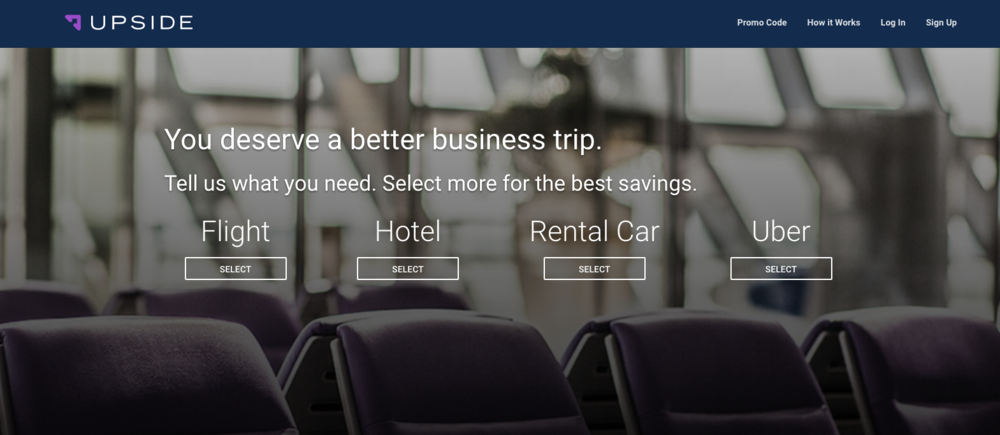
You must have had to shift your focus, then, from technology to management?
True. Human beings are more difficult that computers. Computers do exactly what you tell them to. Humans need coaching to get on the path to doing what you want them to do. It’s a different way of thinking. You have to think of the group, the team, the company. You need to think about team needs instead of your needs. How to make the team happy. How to develop people. What do they need to be successful? When you start thinking of teams, you need to think how do we leave them better than when we found them? How do we help them be better people? I’m very fond of promoting from within.
That sounds like a lot of on-the-job training for you. Or, how did you learn to be a leader?
I got on-the-job training and I learned from my mistakes. In six and a half years doing this sort of job, I’ve made my share of mistakes, some of them absolutely terrible mistakes.
Like what kind of mistakes?
Hiring mistakes. Early on I had some very poor judgment around hiring and poor judgment around how to interact with my reports. I would treat them like peers instead of coaching them. I would treat them like I was a senior engineer. I have the benefit of people who took me back behind the shed and shook me. I had one peer who said, “You are doing an absolutely terrible job and here’s why.” I still talk to him. He’s been my friend for years and years and I still appreciate that.
An MBA will teach you accounting, and a lot about the process in a business, what you need to know from a legal standpoint, from a financial and revenue standpoint. Which you can also get from a book, by the way. But what you don’t learn is how to handle people. Being open-minded enough to learn that you are going to make mistakes. You have to pick yourself up and move on. This is the mistake I made, this is why and how I made it, and this is how we will move on.
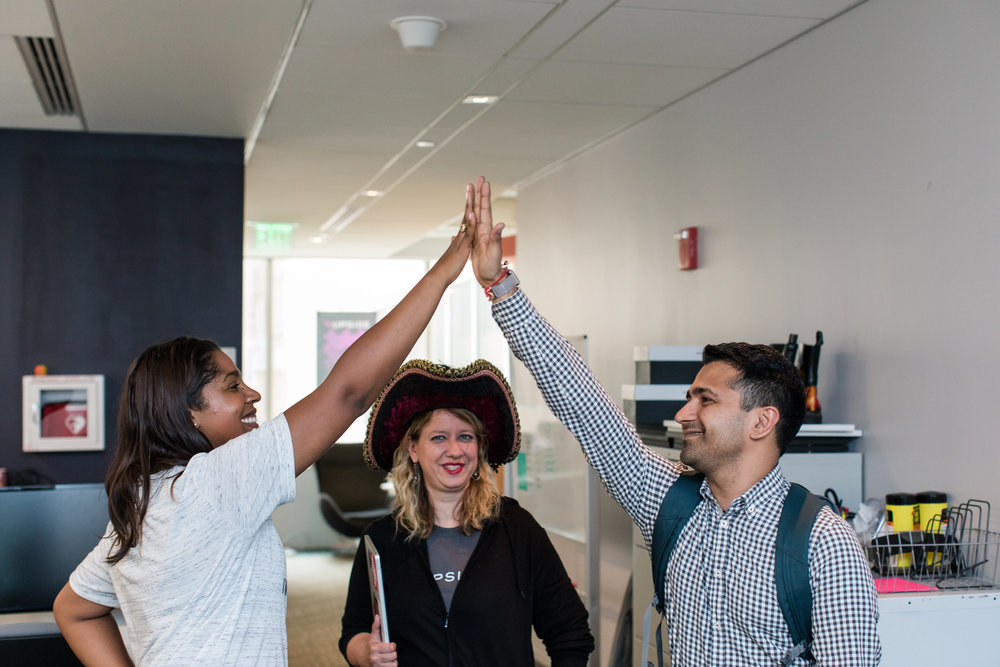
People have lauded your width of knowledge, which sounds unusual.
Largely it’s just genetics. Where I come from and how I learned to think about problems. When I start, I start working mentally through a problem and I tend to work through systems. I think, here’s what it affects. If we change these things, these other things will happen.
My master’s degree was in distributed operating systems, which by the way today is called “the cloud.” I just happened to be a good 20 years ahead of my time, so … awesome there! But a lot of it was in training distributed systems and distributed processes. My background is in computer architecture operating systems. If you change one part of the system, that has ripple effects in other parts of the system. So, if we make changes to the algorithms, how does that change algorithms in different parts of the system?
I’ve largely taken that training that I got from the University of Michigan Engineering School and managed to apply it to a number of different positions I’ve had in my career. I’ve spent a lot of time working in security. OK, if someone happens to get a virus on this machine, what are the things that follow, what is affected? I can go in the direction of saying, let’s go into forensics software and pull it apart and read the source code or spike code. Or, we can think about the different things it’s going to touch in the system, which will show us here’s where we should apply some remediation.
Sometimes it’s more advantageous to think from systems standpoint than it is from a deep-down standpoint. (In engineering, it’s very popular to drive down to deep knowledge, as deep as possible, for instance how the event loop schedules processes no-jazz. We have engineers on our team who could write books on that.)
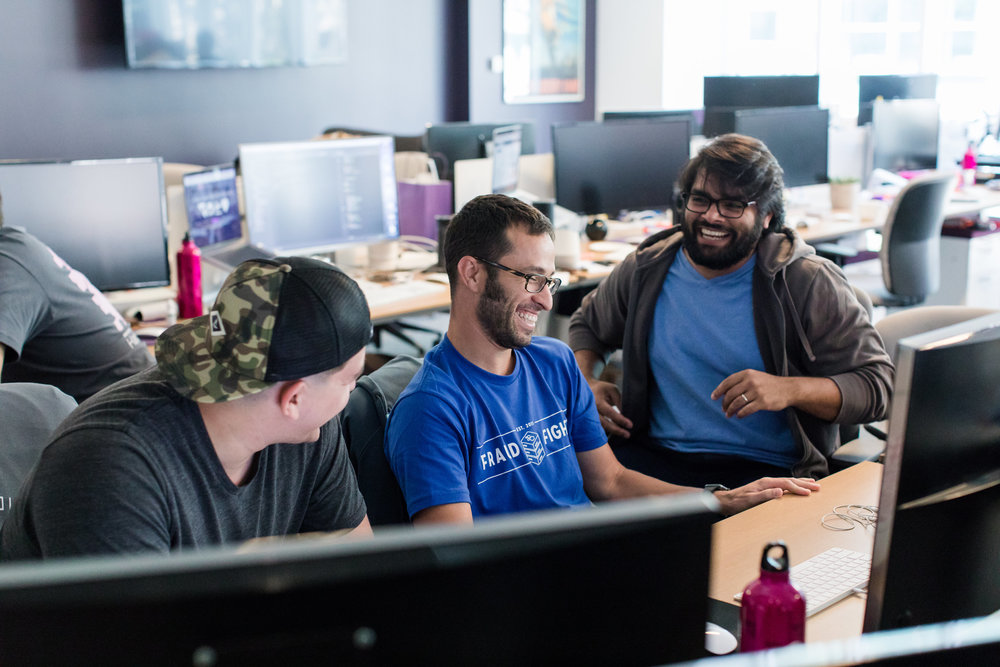
When you were building the culture of your engineering team from your small space in a WeWork office, you say you were aiming for what you called “jazz…where anybody can go and do and build….a golden time.” How did you maintain that culture?
On my LinkedIn right now I’ve removed my intro blurb and replaced it with “Culture is everything. All else is noise.” I actually believe that. Culture really is everything in a small, growing company. How you establish the first principals of culture in a small group is how it’s going to flow as more people come in. So, you hire people with a certain set of cultural norms and you train them on what your cultural norm is. And teach them what to look for in bringing more people in.
There are a couple of prongs in how we preserve a culture: Hiring is exceedingly important. Maintaining high standards is huge. I have a firm belief that previous skills with previous employers do not equal future success. It’s a good indicator, but never 100%. It’s more than engineering skills, it’s are you going to fit with the team? Engineering is a team sport, so can you communicate well? Are you going to absorb our culture and carry it on? I’ve moved past several amazing technologists—blew me away how smart they are—but they didn’t fit in with how we conceived the culture.
The other piece is to pull back human instinct to impose process. I’m a big believer in agile, but that said, we don’t need tennis reports from everybody. We need people to self-organize, we need people to feel free to raise things when they see it, talk without barriers or friction. There’s this instinct to put tons of process on teams. We need enough process to keep everything moving forward, but the urge to say, “I want to be in every one of your meetings,” we need to pull back from that. The people that we hired are awesome. Let’s let them go and be awesome.
What’s under the hood at Upside? There’s a ton of travel planning services out there, what sets you apart and what’s next?
We’re a startup, so I will let you know as soon as I know. We’re still very strongly getting feedback from customers and building up to give the customer what they want. But I’m happy to tell you what’s under the hood. Were on AWS, 100% cloud-native. We are a Container shop, we use Docker. Our scheduler is Kubernetes. We are a continuous integration and continuous deployment shop, which means we’re pushing stuff out to production 8-12 times a day. We are a lean microservices shop. We have 150 microservices in production, the majority written in Node.js. Our frontends are written in React. We use Swift 3 and KOTLIN for full mobile development. I know KOTLIN is extreme bleeding edge, but it looks a lot like Swift, so it helps to coordinate teams.
OK, well I didn’t understand much of that, but I know a lot of our readers will understand it, so…
But I can tell you why our tech is better. There’s a ton of travel sites out there, but they are running on very old tech, 2005 or 2006 technology. It takes them a long time to roll out a new feature. Because we built an architecture so lean and so fast, we can ship a lot of features very fast. So that’s one of the reasons we’re better. Another is that we’re really heavy into data science. You know, travel is actually a big data problem. We have about 3 terabytes of data that pass through our system every day. So, we’re heavily leaning into machine learning model now to find out the best flights and best hotels. It’s turned out to be a super interesting statistics problem.
We do have a supplier relations team and they are terrific. So, some of that is negotiation. Some of that goes into the algorithm.
Do you have access to the same data that everyone else has, or more of it?
We have access to similar data.
Do you take part in these nerf wars we’ve heard happen at your office?
In the case of a war, I’m classified as a hostage. I don’t take part. We are on two floors and there definitely is an inter-floor rivalry developing.
Sounds like a fun place to work, and we know you are hiring now. What other highlights would you like prospective team members to know about?
We’re really close to food trucks. I’ve got to give a shout out to the Farragut Square food trucks! They are about 7 blocks from the White House.
We’ve hired a lot of terrific people. This is a fantastic team to join. They are smart, hungry, really fun to work with, great people to spend time with. And we have a lot of cutting-edge technology here. We are not afraid of the new.
Just the fact that you oversee tech must have developed a culture of gender equity.
We focus heavily on diversity, on gender and racial equity. The computer doesn’t care if you’re female or gay or from another country. The computer itself doesn’t care. And I have a very strong no bro rule here at Upside Engineering.
What does that mean?
That means we really don’t want the overt white-guy-in-tech culture to foster here. Don’t want it, don’t approve of it. We feel it builds barriers between people, that hyper-competitive nature between people. I just don’t feel that it’s useful to build a culture, ultimately.
We’re also very lucky to be in D.C., which has Howard University, University of Maryland, UVA, Virginia Tech. Because of those universities and because the government has very strong diversity and hiring rules, we are exceedingly fortunate to get in candidates that come from all genders and walks of life here and we’re extremely fortunate to be able to hire them. We have a very strong belief here in diversity.
What’s the best part of Upside?
One thing I’d like people to know is that we are solving a very interesting problem. There are a lot of travel sites out there, but not many just for the business traveler. We’ve pulled apart the problem of the business traveler and figured out what they really need. And we are committed to giving them the best possible experience, what we’re calling “6-star customer service,” one star higher than 5-star. We understand that these trips are exceedingly stressful. There’s a lot of people taking them and they make people’s lives miserable. In the leisure system, you basically get no support. They don’t care, so it’s just like “Here’s the cheapest thing. We’re going to treat you as a number.” We really want to bring humanity back into the business travel experience, by putting the caring back and making people feel like they’re valued again.
People who are work travelers will go to three, four, or more cities before they come home. They have prearranged meetings with clients that they can’t miss. Having hassles makes leaving home and going on work trips more stressful. On top of that, airlines and hotels will treat them like people going on vacation. “It doesn’t matter if you miss your connection.”
We can have our customers call us and let us work through the tangles. If your flight is delayed or canceled, let us book another flight. If something is wrong with your hotel, call us.
